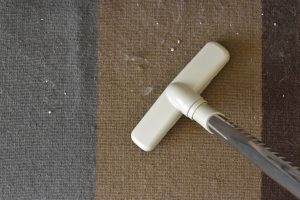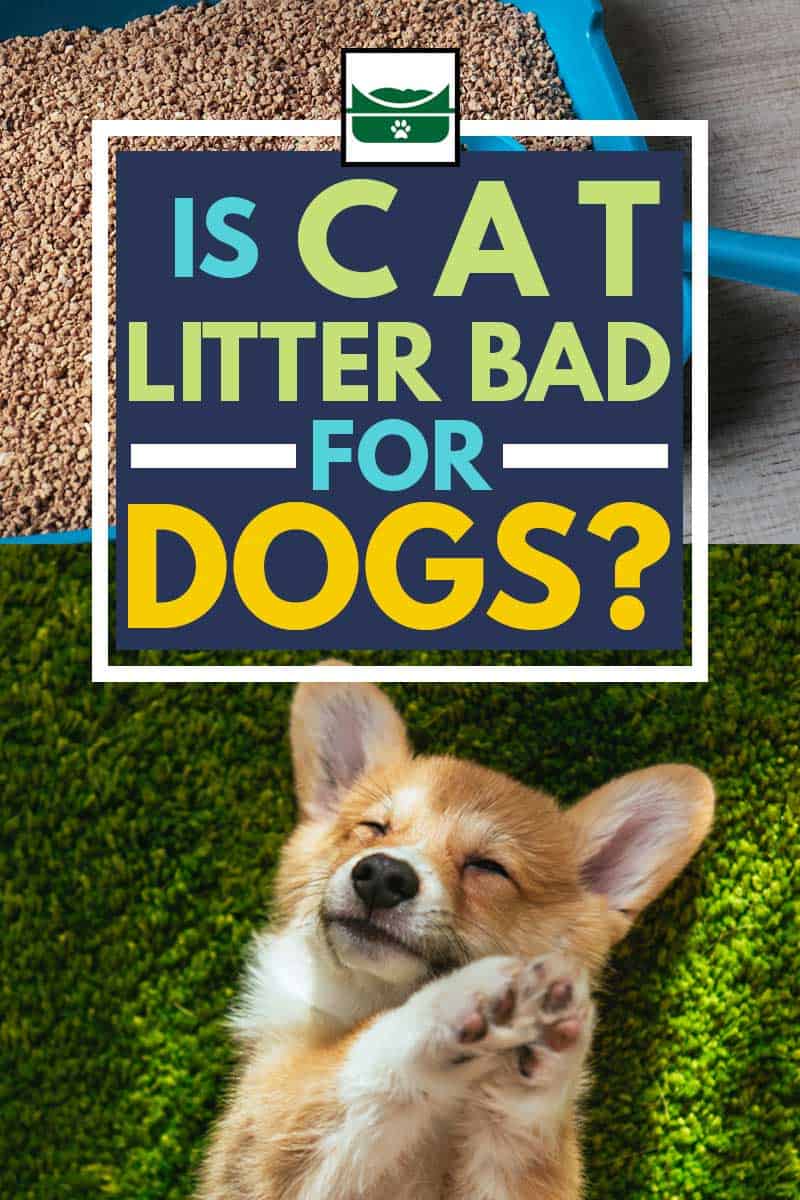 Dogs can sometimes get downright dirty but, when it comes to snacking on cat poo, this is one habit that can be hard to stomach. If you've observed your dog eating from the cat's litter box, you might wonder if cat litter is harmful to dogs? We've researched how different types of cat litter, if ingested, can affect dogs to find the answer for you.
Dogs can sometimes get downright dirty but, when it comes to snacking on cat poo, this is one habit that can be hard to stomach. If you've observed your dog eating from the cat's litter box, you might wonder if cat litter is harmful to dogs? We've researched how different types of cat litter, if ingested, can affect dogs to find the answer for you.
The following types of cat litters are non-toxic to humans and animals, so if your dog ingests a small amount of these types of litter, he should not be harmed:
- Clumping, clay-based litter
- Silica crystals litter
- Non-clumping, clay-based litter
- Biodegradable litter
- Scented litter
Ingesting large amounts of cat litter can potentially create health concerns for your dog.
If your dog frequents the cat litter box, keep reading to learn what types of litter can be detrimental and how to watch for warning signs that your dog might be feeling sick. We'll also give you some tips on how to prevent your dog from eating cat litter. Do not hesitate to consult your veterinarian if your dog is exhibiting symptoms of pain or not acting like herself.
Can a Dog Get Sick from Eating Kitty Litter?
Whether your dog will get sick from eating cat litter depends on the amount of litter he ingests. Small amounts of non-toxic litter granules or pellets should pass through your dog's digestive system fairly easily and typically do not make your dog sick.
However, ingesting large amounts of cat litter can be riskier for dogs. Clumping, clay-based cat litter is particularly dangerous because it tends to have additives to promote absorption. Clumping litters, when eaten in large quantities, can potentially cause a blockage in your dog's digestive system that would require surgery to remove.
How Do You Know if Your Dog is Sick?
If you observe your dog eating cat litter, monitor your dog closely to watch for symptoms, he might be feeling sick. Dyes or perfumes found in scented cat litters might upset your dog's stomach to cause vomiting or diarrhea. Absorbent cat litters might cause your dog to experience constipation, observed by less frequent bowel movements or physical strain while pooping. Consult your veterinarian if any symptoms do not subside within 12 to 24 hours.
Why Does My Dog Eat Cat Litter?
Eating cat litter was likely not your dog's intention. Yet, the ingestion of litter does occur as a secondary factor when your dog eats cat poo. Certainly not an appealing thought to us but, eating feces is not abnormal for dogs. Dogs will often eat cat feces, or other types of feces, as an instinctual tendency.
Eating feces does pose the risk of making your dog sick because the feces may contain bacteria or parasites. If your dog has been eating cat feces, consider consulting your veterinarian to test for bacterial infection and internal parasites even if symptoms of illness are not present.
Can Cat Poop Kill Dogs?
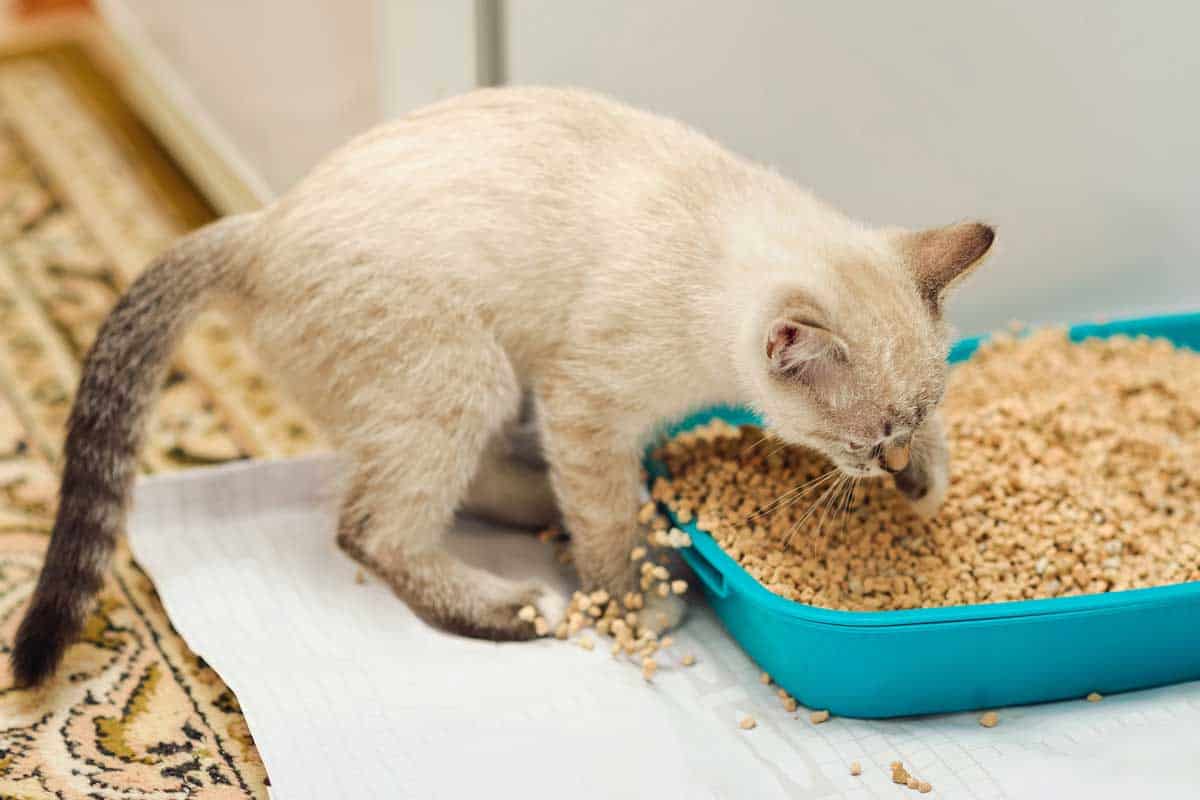
It is improbable that your dog will die from eating cat poo. Although it is a disgusting habit, eating feces is a commonality among dogs. Veterinarians refer to this nasty habit as a condition called coprophagia.
Do not panic if you observe this behavior in your dog because coprophagia, or eating feces, occurs naturally and can result in dogs for several reasons:
Survival Instinct
Dogs are scavengers and, if not regularly fed with a nutritious diet, they tend to sample food sources like garbage sites, outdoor debris, animal feces, or wild animal carcasses.
Pregnant or nursing mother dogs will eat either their own, their pups, or other animal feces to obtain additional calories in their diet to sufficiently sustain developing pups.
Learned Behavior
Pups often observe their mother eating feces. In a situation where the mother does have a healthy diet, she might otherwise eat the pups' feces to keep the bedding clean.
Oral Curiosity
Dogs and puppies explore their environment with their mouths. Curious canines will often attempt to eat non-food objects, including feces. Sometimes this behavior will cease as the puppy or dog realizes that poo is not her favorite food. But, other times, the behavior will continue or can result if a curious pooch is under-stimulated and in search of a bit of fun.
Dietary Deficiency
If you observe coprophagia that seems to have taken a sudden onset, there are rare cases in which it is caused by either a dietary deficiency. A veterinarian can help you to diagnose and remedy a nutritional deficiency.
Environmental Stress
A disruption of your dog's environment that causes your dog stress can result in coprophagia. Ask yourself if there have been any significant changes for your dog that you might be able to help your dog adjust to over time like:
- Relocation to a new home/neighborhood?
- New pets entered the home?
- Change in diet?
- Schedule change to allow you less time to spend with your dog?
Eating poo rarely harms dogs, although, as we've previously mentioned, because feces may contain bacteria or parasites, it would be a good idea to consult your vet and regularly have your dog tested if she frequently exhibits this behavior.
How do I Get My Dog To Stop Eating Cat Litter?
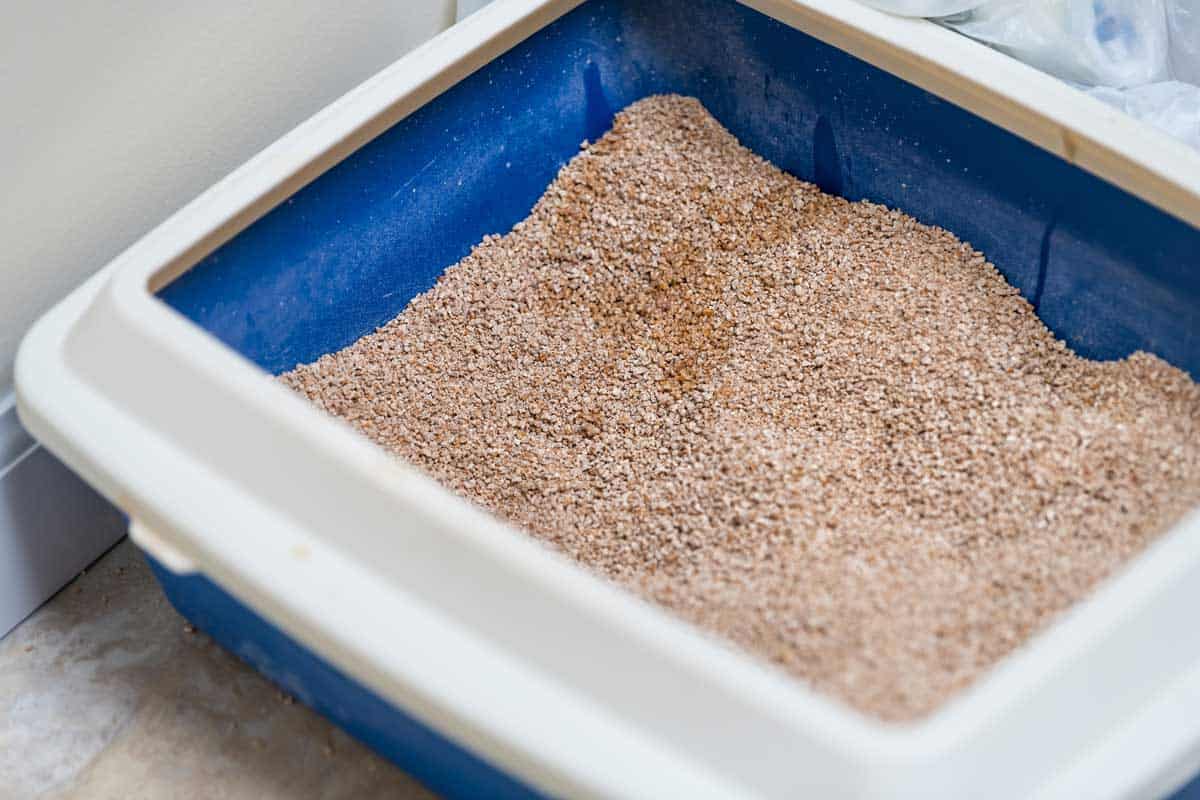
Using a covered litter box can deter larger dogs from eating cat litter but might still pose a problem for small dogs. Most veterinarians recommend the best way to prevent your dog from eating cat litter is by locating the litter box in an area of your home where your dog cannot access it.
Install a Baby/Child Gate Across the Entryway
This is a simple solution for small dog owners because your cat will have no difficulty clearing the height of the gate to access the room where the litter box is located.
If you have a larger dog or a dog who likes to jump obstacles, you can install the gate at a higher level, several inches above the floor. Your cat will be able to walk or crawl beneath the raised gate, but your dog should not be able to hurry through.
Install a Cat Door
Just the right size for your cat, a cat door can provide private litter box access into an enclosed porch, garage, or closet without your dog sneaking past.
Install a Door Chain
Leave the door ajar, linked with a short chain, and your cat will be able to maneuver through the narrow gap when he pushes the door, but your dog won't make the clearance.
For some other great suggestions on where to hide your cat's litter box from your dog, check out our blog, "Where Can You Hide the Litter Box (and Should You)?"
Can I Use Cat Litter for My Dog?
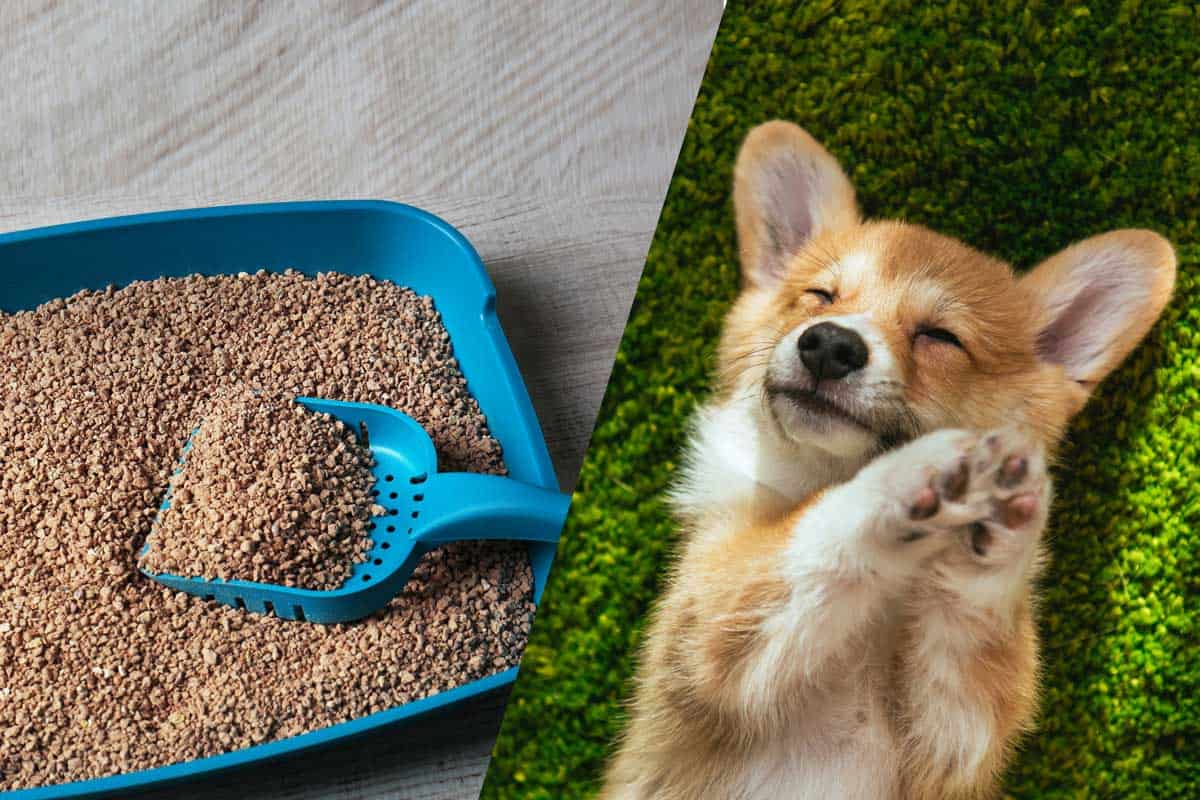
Yes! You can safely use cat litter for a litter trained dog and, small dogs, in particular, might enjoy doing their business in cat litter. We would recommend that you specify a litter box for your dog even when filling it with cat litter because sharing litter boxes with cats and dogs can potentially transmit bacteria and parasites between the animals.
To help with your litter selection, check out our blog, "The 7 Types of Cat Litter Every Cat Owner Must Know."

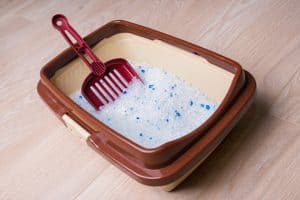
![cat examines kitty litter box with eco-friendly silicate litter - Can You Wash and Reuse Crystal Cat Litter? [Answered]](https://litter-boxes.com/wp-content/uploads/2023/08/cat-examines-kitty-litter-box-with-eco-friendly-silicate-litter-300x200.jpg)
